Pool planning mistakes – 9 errors to avoid when designing and building your backyard oasis
Make sure you avoid these common errors when planning your swimming pool project
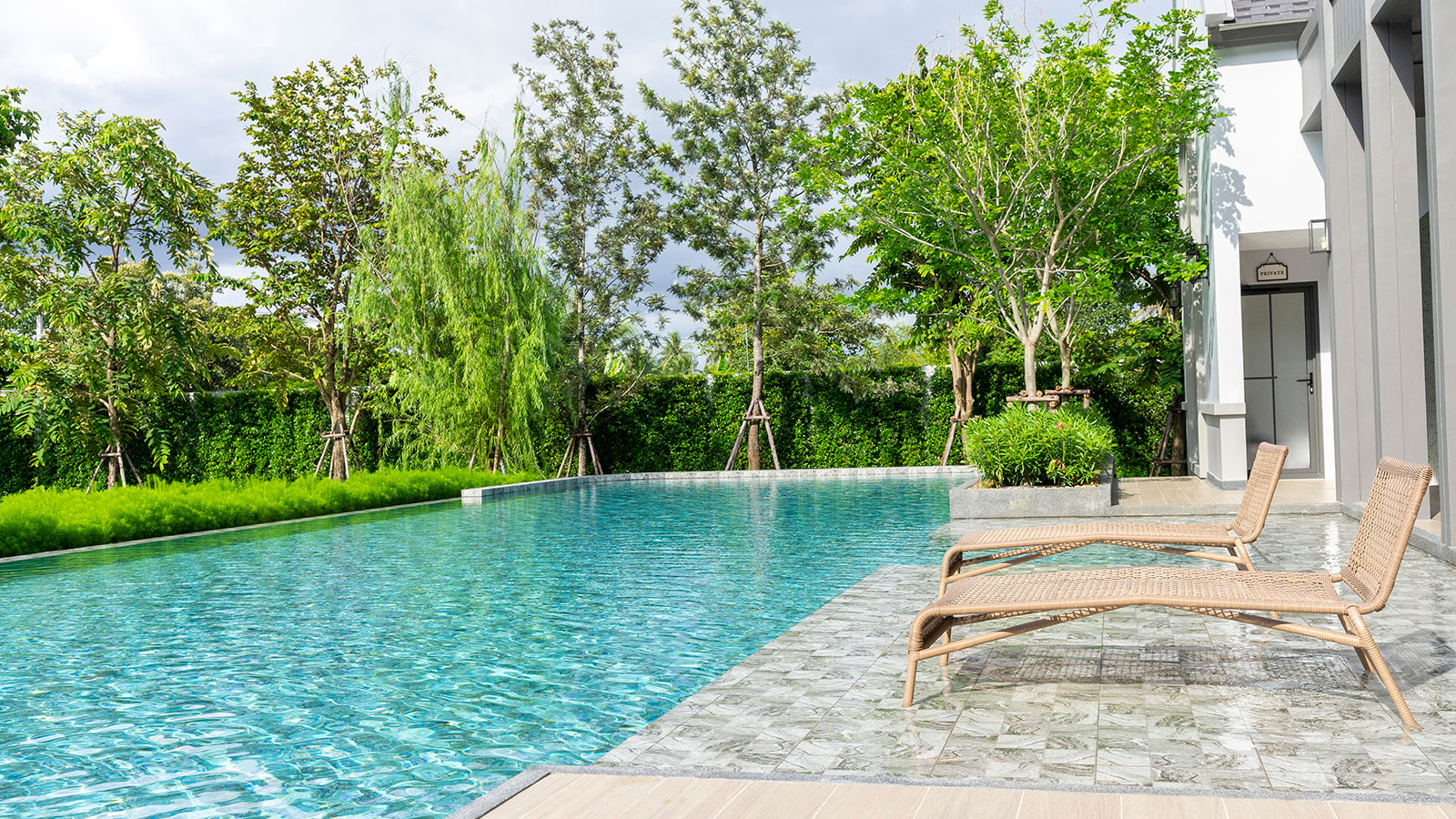
- 1. Forgetting to do thorough research
- 2. Not establishing a realistic budget
- 3. Not hiring professionals
- 4. Failing to look at the big picture
- 5. Ignoring location and size
- 6. Not reading or understanding contracts
- 7. Neglecting building logistics
- 8. Failing to choose a style that complements your home
- 9. Avoiding safety issues

Typically falling between the cost of buying a home and a new car, a pool project takes lots of time, money, and space in your yard. For those reasons (and more), it's incredibly important you don't make any of the most common pool planning mistakes as otherwise the cost of your project could quickly spiral out of control.
Providing you plan your project carefully, this backyard pool will be the centerpiece of your outdoor space when friends, family, and neighbors gather for parties and to cool off on hot days. It’s the place where memories can be made and has the potential for entertaining future generations. If the pool is heated, you may be able to swim several months a year, enjoying the benefits of daily fitness and better health. Your yard – with that fabulous pool – will be a neverending vacation destination.
Before you go ahead and make one of the most significant investments of your life, however, it pays to get smart, practical and prepared.
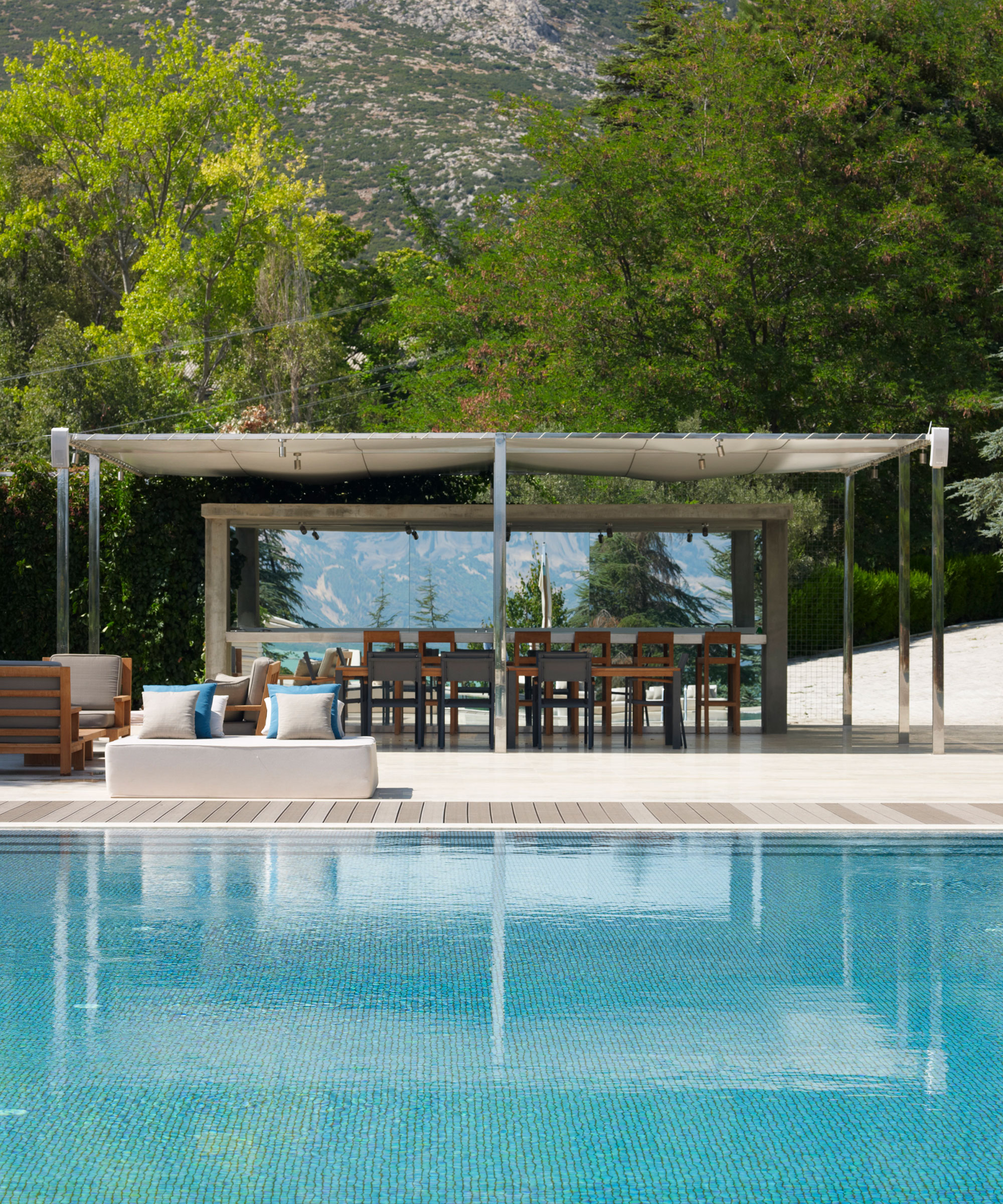
Pools can be a huge investment, so proper planning is key to ensure the project doesn't incur any additional costs
9 pool planning mistakes you need to know
While it’s true that just about any backyard can accommodate a swimming pool, that doesn’t mean there’s one solution for every size, shape, or slope.
Proper pool planning includes finding the right size and location to hiring the right professionals and everything else in between. The more research you do and knowledge you have before beginning this major project, the more potential there is for everything to go swimmingly.
1. Forgetting to do thorough research
Investigate the types of pools and materials in which you are interested, along with extras, like an integrated spa, beach- or zero-entry pool, swim-up bar, heating, etc. Look at a minimum of six residential pools in your region, ask questions of the homeowners, take notes, and get referrals.
Have a basic understanding of what you want before contacting a professional. 'Nobody knows what you need, want, or desire more than you,' says Tim Coleman of Fluid Design Concepts in Waynesboro, Virginia.
Think about the number of people and age range that will use your future pool, along with its primary reason for being built. Is it for exercise or entertainment? Do you prefer the idea of a natural swimming pool? Do you want or need water features like fountains and waterfalls? Will your dogs swim in the pool with you or are they afraid of the water? If you build a pool, will it swallow up all the space in your yard for pets or kids to run and play? Do you also want to include a pool house or a specially designed pool patio alongside it? There’s so many considerations.
2. Not establishing a realistic budget
It’s easy to get carried away with all the possibilities for your own backyard swimming pool. Sources range from social media showing off adorable cocktail pools that are perfect for pool parties to television series chronicling the most extravagant pool builds, but it's important to be realistic about how much it costs to build a pool.
'Establish a realistic budget, because money can buy just about anything,' says Tim Coleman. 'Many things in the pool world – especially those found on the internet – are out of most budgets.'
What's more, when it comes time to sell your house, realize that you will not likely recoup all of your investment.
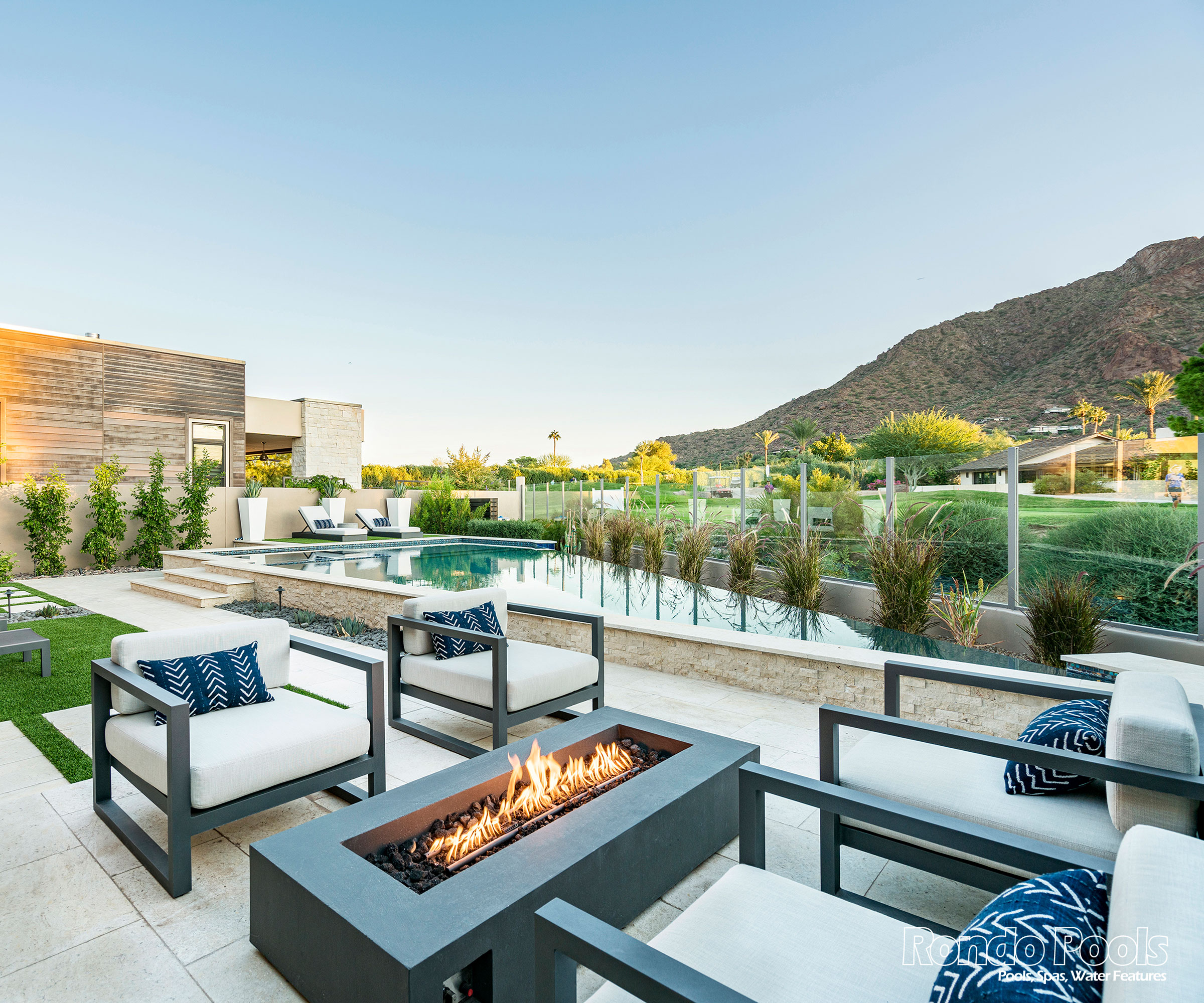
Ensure you set yourself a realistic budget, especially if your pool is part of a wider backyard project. Pool design by Rondo Pools
3. Not hiring professionals
Research the experience and reputation of a licensed pool contractor before making your final decision. Prior to excavation consult a geotechnical engineer, advises Stephen Neville, vice president of Stainless Aquatics in Del Mar, California. 'On most contracts, the soils conditions are the responsibility of the homeowner,' he says. A geotechnical engineer may be recommended by the structural engineer from the pool design/build company. Or contact the Association of Environmental & Engineering Geologists (AEG) or Cal Geo.
'People in other trades sometimes are not aware of some of the limitations of materials in submerged or chemically treated environments, along with construction methods or sizing of equipment pads for workability, maintenance, and clearance needs, says Lea Frederick of Vue Custom Pools in Greensboro, North Carolina. 'Accreditations and associations within our industry require builders to abide by a code of ethics,' says Lea.
4. Failing to look at the big picture
Not considering the whole yard as part of a pool building project can be a huge oversight. In addition to the pool construction company, consult with a landscape architect.
'They will be looking at the holistic setting along with you, but will likely have an "intuitive feel" of what’s possible now and in the future,' says Tim Coleman. He emphasizes the importance of using a licensed landscape architect, found through the state chapters of the American Society of Landscape Architects (ASLA).
Swimming pool companies build and install pools, while landscape architects work with the whole backyard landscaping and environment, both hardscape and softscape (plants).
Including pool and outdoor lighting is also part of looking at the bigger picture in your project. 'At night, it could look spectacular if done correctly and for safety,' says Lea Frederick. 'Surround landscape and feature lighting can make the project amazing.'
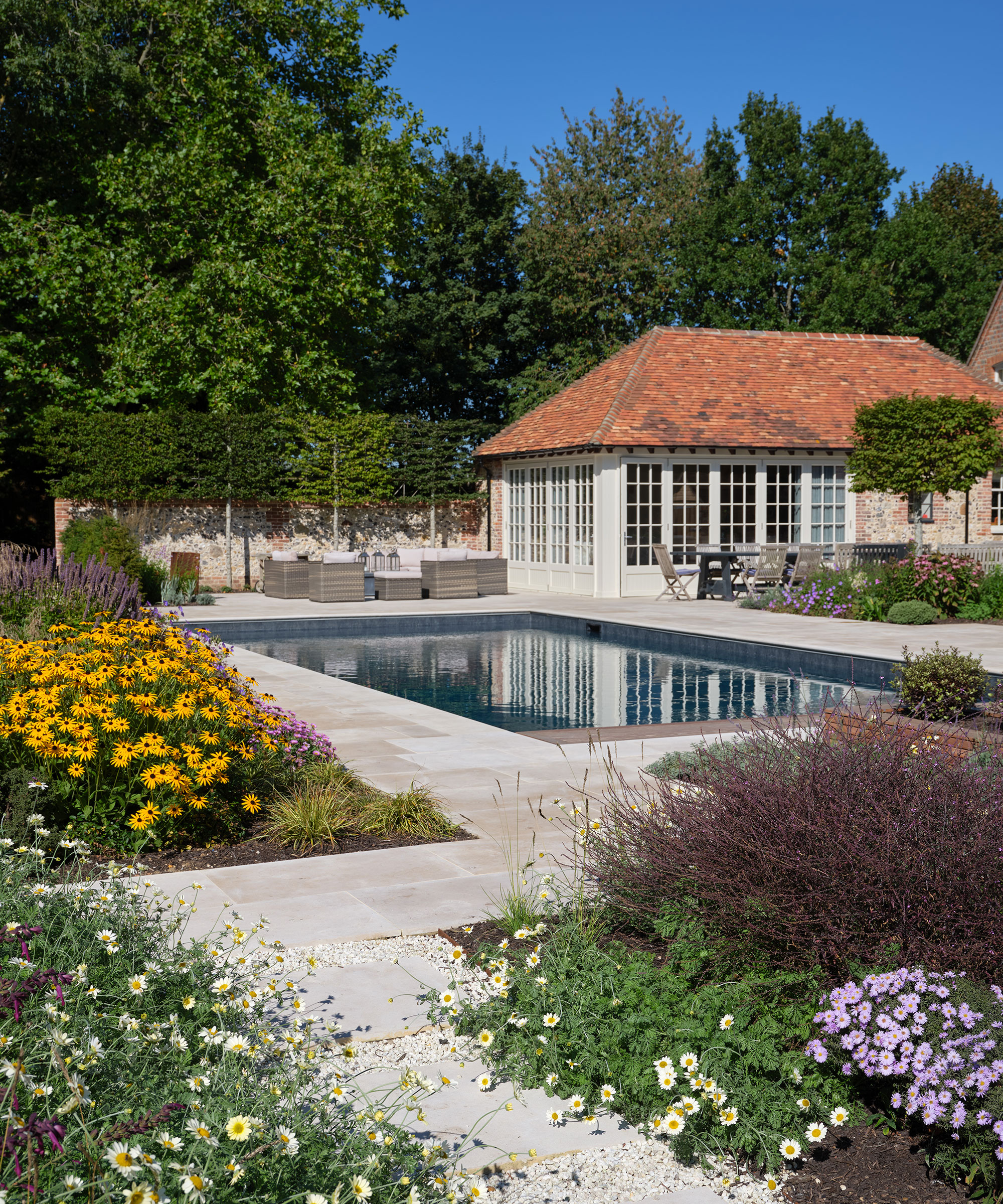
Consider how the pool will sit within the wider landscape of your backyard
5. Ignoring location and size
Suppose you have a one-acre property and want a regular-size pool area. You ask the builder to dig that big hole at the far end of your plot. Fast forward to the end of the project. You and your guests exit the pool at night, running across the itchy grass in the dark. Just whose smart idea was it to build the pool so far from the house, anyway?
Conversely, your family wants a regular-size or larger pool in that pint-sized backyard and nobody stops you. Your entire backyard is now a pool. When you walk out the back door, you can jump or fall right into the water, whether or not that’s your intention.
How much property is available for your aquatic dream? 'You may be envisioning a waterpark when in reality you only have space for an enhanced water garden,' says Tim Coleman, adding, 'Most people have space for something in between.'
He suggests using a rope or extension cord and placing it where you want to build the pool. View it in relation to the rest of the yard: is it close, but not too close to the back door of your house? Is it in an area shaded by mature trees most of the day so that it gets almost no sun? Does it allow access to other zones in the yard, like the grill station, dining, seating, or backyard playground area?
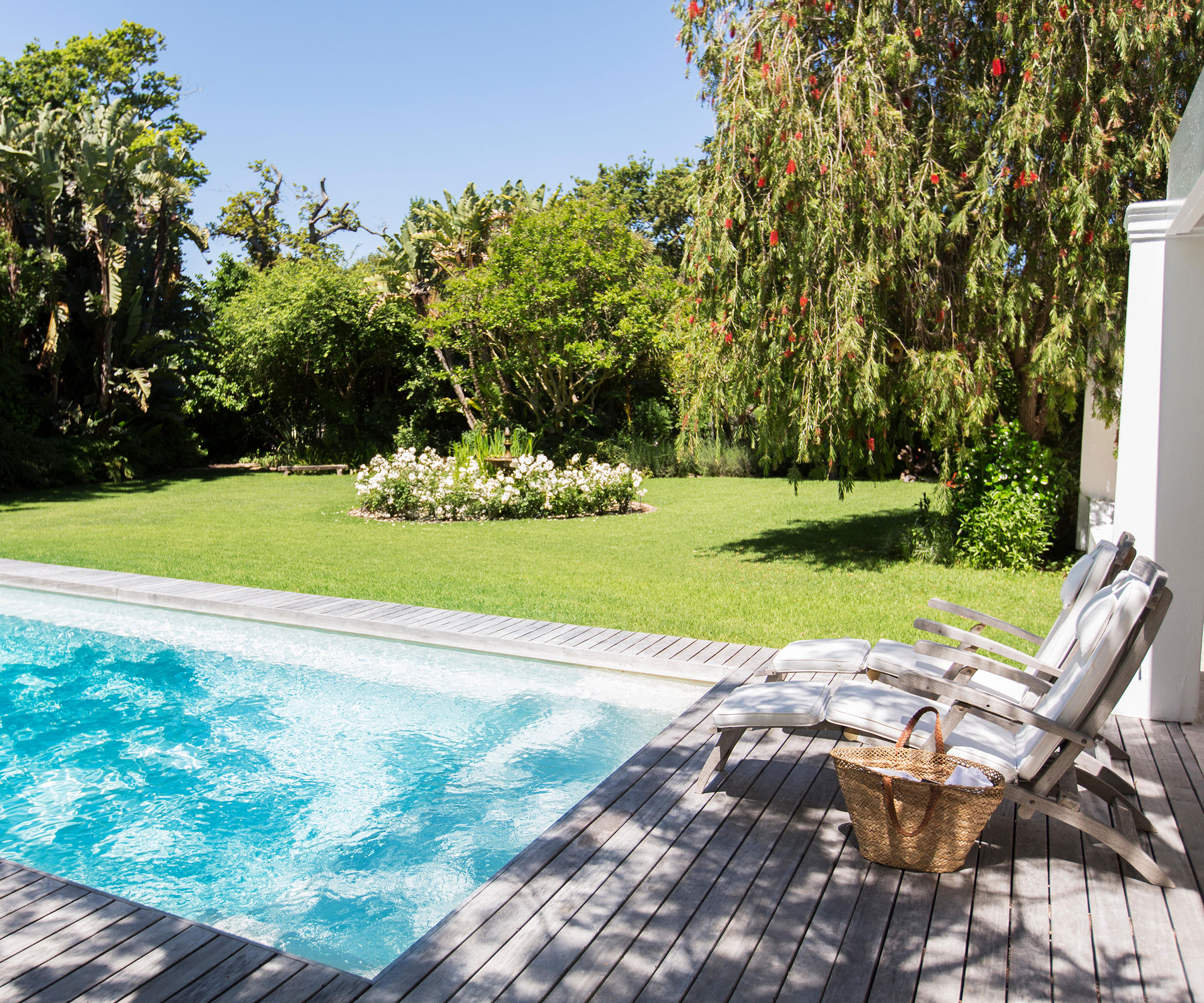
Consider the size of your pool in relation to the overall size of your backyard. Although it's a key feature, you don't necessarily want the pool to dominate the entire space
6. Not reading or understanding contracts
Another common pool planning mistake relates to the misunderstanding of contracts, so make sure you get all pool project details in writing to avoid this happening.
The contract must include a description of the work along with the materials and equipment to be used, according to the California Contractors State License Board (CSLB). Pool contracts require a plan and scale drawing of the pool’s shape, size, and dimensions, along with construction and equipment specifications.
An agreement between parties should clearly spell out the 'what ifs' and other contingencies that may not have been apparent at the start, says Tim Coleman, adding: 'The blank spaces should be filled in to the point that everyone is comfortable with the agreement. If not, let the person representing the contractor know and ask them to explain.'
He also suggests recording or filming the transaction, acknowledging the recording with all concerned. 'That way, you can play it back to clarify a point.'
7. Neglecting building logistics
Before excavating an inground pool, call 811, the national dig hotline, to request that the location of buried utilities be marked so that you don’t accidentally dig into an underground utility line.
Building equipment and machinery like skid steers, backhoes or excavators, and wheelbarrows will need to access your backyard through a large-enough side yard, fence, or wall that will be temporarily removed. Do you have a septic system or well that will need to be moved? Is there an existing and new stormwater management plan?
It's important to know where your property begins and ends too. Obtain a copy of the plat/survey with the deed from your mortgage or title company; or from your city or county tax assessor, land records, or building department.
8. Failing to choose a style that complements your home
Do you live in a Victorian home but your contractor is pushing for a sleek, modern swimming pool and contemporary pool deck? Know your house’s architectural style and the exterior materials used for the home and existing hardscape. Is the facade stucco, brick, wood, or something else?
'Any landscape enhancement should complement the existing home’s architecture,' says Tim Coleman.
The house, pool landscaping, and pool should look like they were all designed at the same time or by the same firm. Materials, colors, and textures should integrate with one another, and not appear as if they were added as an afterthought.
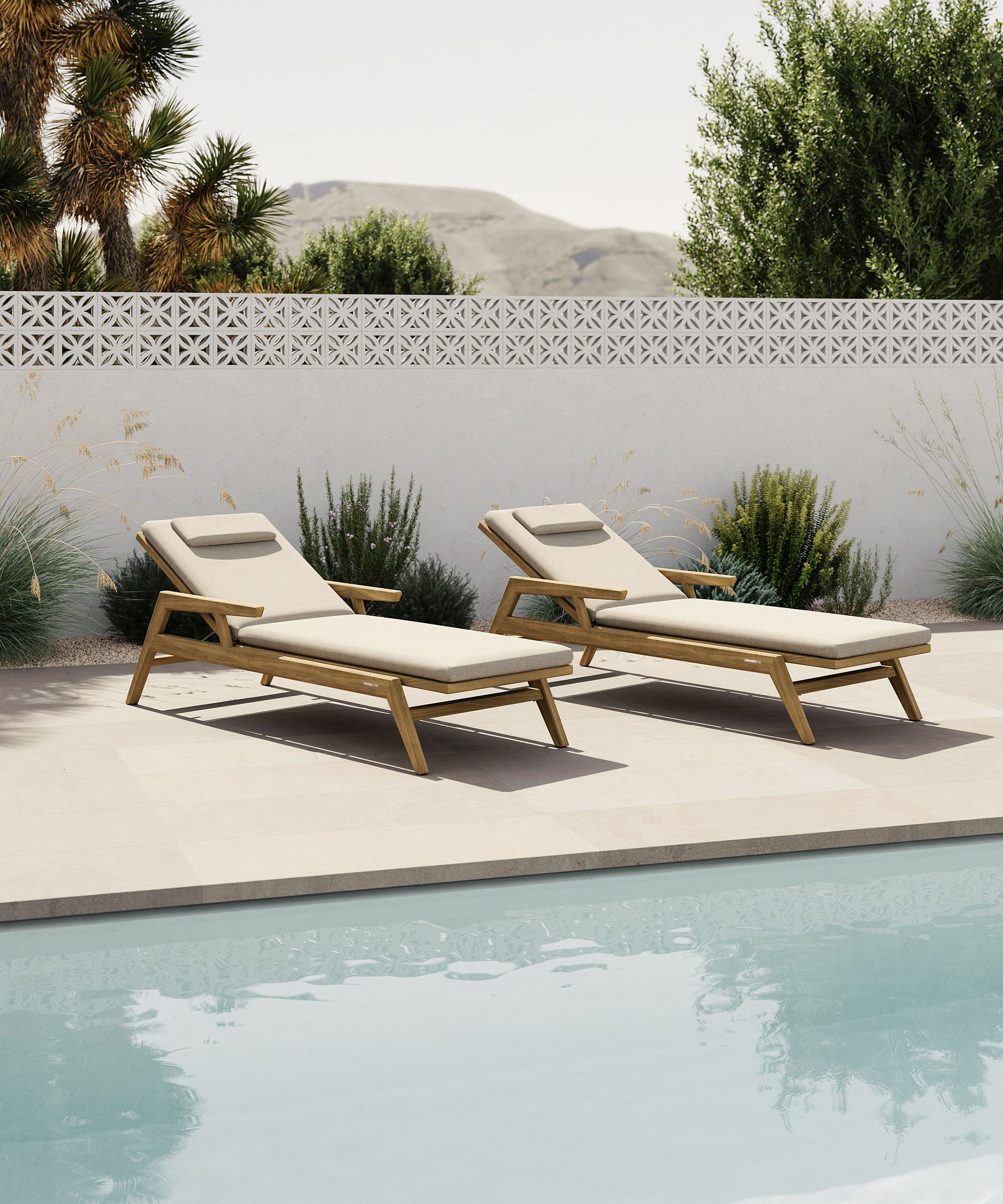
A pool is a centerpiece of any backyard, so it should be designed to blend with both the house and the surrounding landscape
9. Avoiding safety issues
'Design with safety in mind,' advises Stephen Neville. You and your building professional should research local laws to understand building codes and obtain the correct permits before starting a pool project. Learn the seven layers of safety of the Pool Safely campaign established by the U.S. Consumer Product Safety Commission, with an emphasis on barriers, pool fences, and federally compliant drains.
'No contractor should ever suggest or offer to bypass safety,' adds Tim Coleman. 'There may be alternatives allowed in your jurisdiction’s code. For instance, the International Swimming Pool and Spa Code (ISPSC), various version dates, is one of the most prevalent in the United States. It is very specific about barrier requirements. Depending upon your jurisdiction, you may opt for an automated pool cover instead of a properly designed and built fence. In Virginia, that is acceptable per code.'
Not only think about the children you know who will be using your pool but those who could access – by whatever means – that tempting, refreshing body of water. Prevent any potential accidents by following local and national laws and guidelines.
If you are convinced that building a pool will made your home more beautiful and luxurious, it's essential to follow the correct procedures if you want to avoid making one or more of these costly pool planning mistakes.
What's more, in all the excitement of planning your dream pool, don't forget to consider the ongoing costs and regular cleaning and maintenance that are key to a sparkling pool that should last for years.
Sign up to the Homes & Gardens newsletter
Design expertise in your inbox – from inspiring decorating ideas and beautiful celebrity homes to practical gardening advice and shopping round-ups.

Lisa has a B.A. from California Polytechnic State University, Pomona, and a certificate in landscape design. She's written about gardening and outdoor living since 2008 for various websites and magazines, including About.com, TheSpruce, Gardeningetc, and Laguna Beach Magazine. Lisa and her family spend their spare time restoring their Midcentury Modern home in southern California. One of her longtime goals is to have a sustainable vegetable garden like her grandmother did in Texas.
-
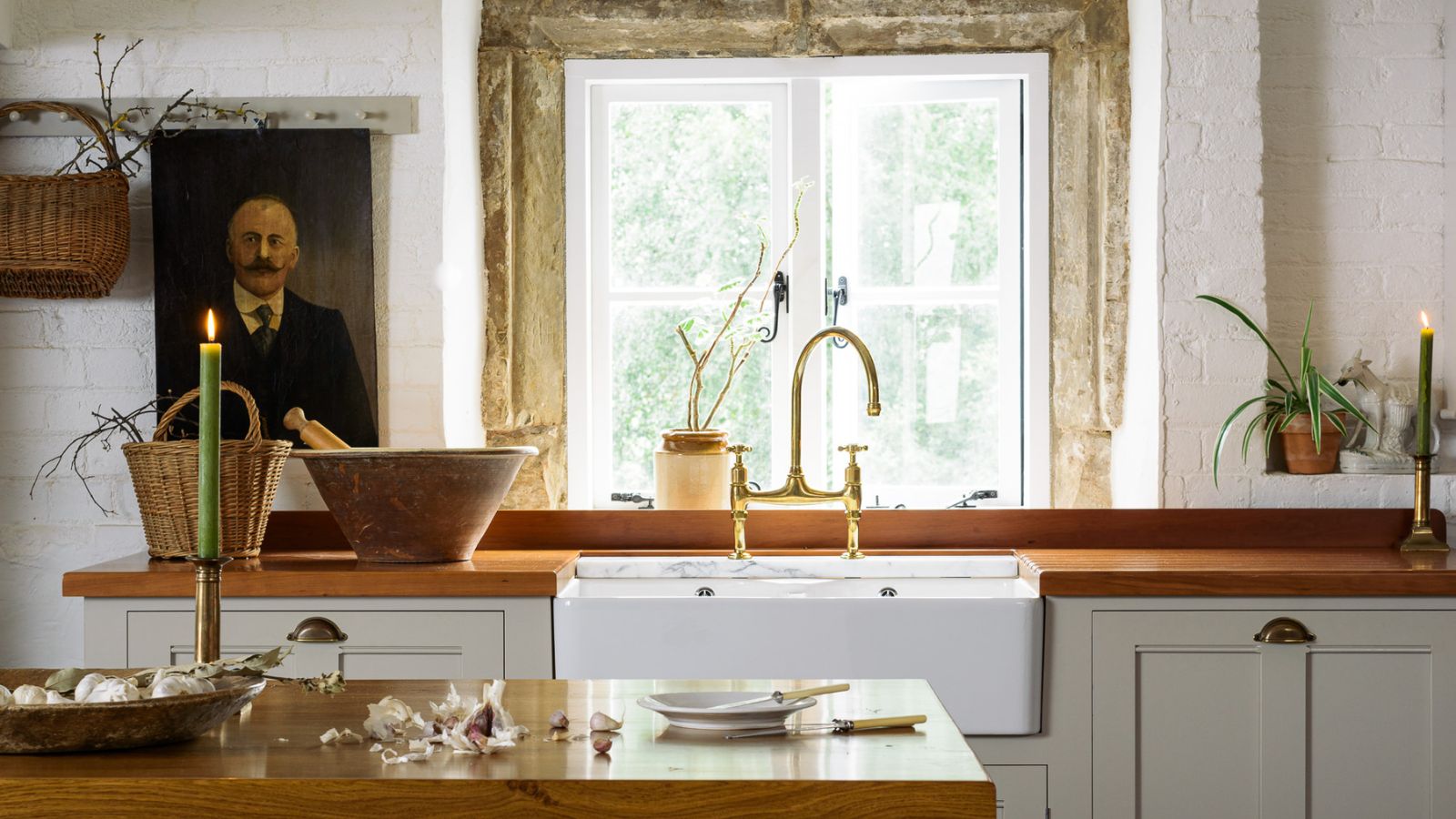 This simple marble hack elevates my budget-friendly wooden kitchen countertops and prevents the dreaded water damage for way less than you’d think
This simple marble hack elevates my budget-friendly wooden kitchen countertops and prevents the dreaded water damage for way less than you’d thinkThis design trick looks expensive, solves a problem, and was the easiest decision I made during my kitchen reno
By Charlotte Olby Published
-
 Emily Blunt gifted Cillian Murphy this $545 pillow – she's 'obsessed' with these luxury pillows, and frankly, so are we
Emily Blunt gifted Cillian Murphy this $545 pillow – she's 'obsessed' with these luxury pillows, and frankly, so are weThe Oppenheimer stars sleep on this ultra-luxe goose down pillow – here's why we love it – plus our affordable alternatives from $35
By Sophie Edwards Published